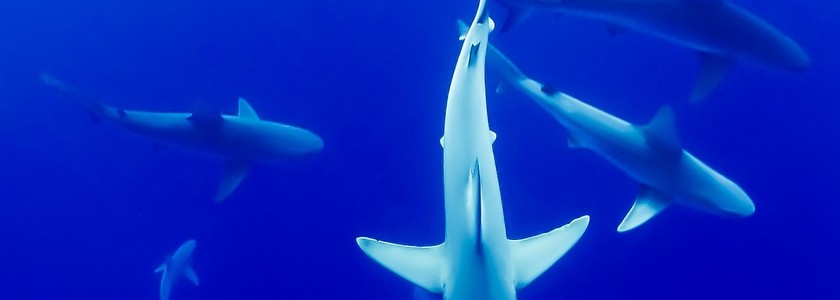

Between the years 2010 and 2016, researchers recorded an average of 205 Great White shark sightings each year around False Bay, which is an 18 mile wide basin on the southwest corner of South Africa, near the city of Cape Town. They love to hang out in this area and hunt for prey. Last year, that number greatly reduced to only 50 of these sharks being spotted. What is even sadder is that there has not been a single sighting of a Great White shark this year in that area! A research organization, called Shark Spotters, have recorded a significant decline in shark activity, both along the inshore and at Seal Island over the past two years. Lack of these sharks also puts a strain on the local tourist economy.
Along with the concern for where the actual sharks are located, there is also concern for the area's ecosystem. Great White sharks help control prey density and restricting smaller predators. With the decline in these sharks, it has led to an increase of Sevengill sharks, which is a top predator from a different habitat. During the years of 2017 and 2018, researchers documented 120 Sevengill sharks. With no Great White sharks present for competition, this puts Sevengill sharks at the top of the food chain.
The exact reason for the disappearance is unclear. When the decline was first talked about last year, local shark researchers blamed it on over-fishing. The ongoing catching of fish and smaller sharks in the area has led to a lack of food for the Great White sharks. They also suspected that some fisheries might be illegally catching young Great Whites. Another theory is that the decrease is caused by Orca whales. Once the Orcas move in, Great White sharks will immediately vacate their preferred hunting ground and may not return for up to a year, even if the Orcas are just passing through, says Dr. Salvador Jorgenson, Senior Research Scientist at Monterey Bay Aquarium. This has occurred off the coast of California in the past.
The greatest concern overall could be the changing climate and environmental shifts for the Great White sharks, but Meaghen McCord, founding director of the South African Shark Conservancy, says scientists are not prepared to make those conclusions just yet.